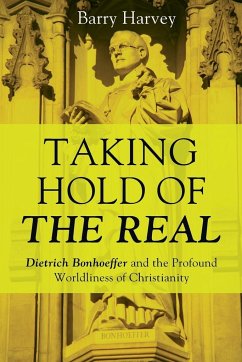Christianity has lost control of its brand. That matters even for nonbelievers because Christian symbolism permeates Western culture. It shapes the source code for how we think about ourselves and what we expect from one another. If God is all-controlling, then human control is divinely sanctioned. Our efforts to control one another have cosmic legitimacy--the legitimacy claimed by fundamentalists pursuing a political agenda that has nothing to do with Jesus of Nazareth. But if God is defined as compassion and loving-kindness, then Christianity calls the faithful to compassion and radical hospitality. Wallace traces the backstory of this vitally important tension all the way back to competing translations of Moses's argument with the burning bush, arguing for a "Copernican turn" in which the spiritual encounter with compassionate Presence lies at the heart of Christianity.
Bitte wählen Sie Ihr Anliegen aus.
Rechnungen
Retourenschein anfordern
Bestellstatus
Storno








